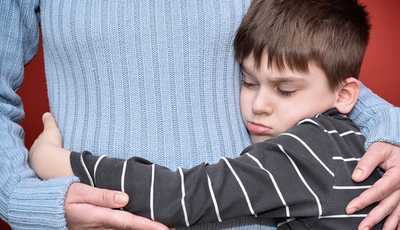Hair can look oily, limp, and messy even after washing, causing discomfort, itching, and sometimes dandruff. Sebum protects hair and keeps it healthy, but excess sebum makes hair greasy quickly. Seborrhoea is when scalp glands produce too much sebum. It may be caused by genetics, stress, or hormonal changes, as stated in the report by TOI. People with this notice persistent shine and oiliness regardless of shampoo frequency.
Heavy shampoos, conditioners, waxes, or silicone-based products trap oil and dust. Even “moisturising” products can be too rich for oily hair. Using products made for oily or normal hair (lightweight, water-based) prevents buildup.
Straight or silky hair spreads oil quickly from scalp to ends. Curly or textured hair holds oil near roots longer, so it looks less greasy, as per the TOI report. Knowing your hair type helps choose washing frequency and products. Dust, smoke, and pollution stick to scalp oil, making hair look dirtier. Pollution irritates the scalp, triggering more sebum production.
Over-conditioning or applying conditioner on scalp. Washing with hot water. Washing too often or not rinsing properly. Using wax, creams, or oil-based treatments.
Frequent use of wax, serums, straighteners, or curling irons stimulates oil production. Even oily hair needs hydration. Use lightweight, water-based moisturisers to balance oil without greasiness. Make a homemade scalp scrub – Mix 1 tbsp sugar add 2 tbsp multani mitti then add aloe vera gel and lastly add ½ tbsp rose water. Apply in sections, leave 20 mins, rinse. Absorbs oil and removes buildup naturally.
Right products, proper diet, limited styling, and natural remedies keep hair clean, shiny, and manageable. This article is for general information and not a substitute for professional medical advice. Always consult a doctor for scalp or health issues.
Hair becomes greasy quickly due to excess scalp oil, wrong hair products, diet, hormones, hair type, pollution, or bad hair habits.
Q2. How can I stop my hair from getting oily after washing?
Use lightweight shampoos, avoid over-conditioning, limit styling products and heat, try tea tree oil, and maintain a balanced diet.
Heavy shampoos, conditioners, waxes, or silicone-based products trap oil and dust. Even “moisturising” products can be too rich for oily hair. Using products made for oily or normal hair (lightweight, water-based) prevents buildup.
Diet, hair type, pollution, and habits that make hair greasy
Foods high in dairy, sugar, and high-glycemic index can increase oil via hormone changes. Stress, medicines, or medical conditions may also increase scalp oil. Roots are often the first to appear greasy.Straight or silky hair spreads oil quickly from scalp to ends. Curly or textured hair holds oil near roots longer, so it looks less greasy, as per the TOI report. Knowing your hair type helps choose washing frequency and products. Dust, smoke, and pollution stick to scalp oil, making hair look dirtier. Pollution irritates the scalp, triggering more sebum production.
Over-conditioning or applying conditioner on scalp. Washing with hot water. Washing too often or not rinsing properly. Using wax, creams, or oil-based treatments.
How to prevent greasy hair
Apply conditioner mainly to hair ends, not scalp, to prevent buildup. Use tea tree oil as tea tree oil has antiseptic and oil-absorbing properties. Shampoos with tea tree oil reduce sebum, dandruff, and itching. Can also dilute tea tree oil and massage directly on scalp, as mentioned in the report by TOI.Frequent use of wax, serums, straighteners, or curling irons stimulates oil production. Even oily hair needs hydration. Use lightweight, water-based moisturisers to balance oil without greasiness. Make a homemade scalp scrub – Mix 1 tbsp sugar add 2 tbsp multani mitti then add aloe vera gel and lastly add ½ tbsp rose water. Apply in sections, leave 20 mins, rinse. Absorbs oil and removes buildup naturally.
Right products, proper diet, limited styling, and natural remedies keep hair clean, shiny, and manageable. This article is for general information and not a substitute for professional medical advice. Always consult a doctor for scalp or health issues.
FAQs
Q1. Why does my hair get greasy so fast after washing?Hair becomes greasy quickly due to excess scalp oil, wrong hair products, diet, hormones, hair type, pollution, or bad hair habits.
Q2. How can I stop my hair from getting oily after washing?
Use lightweight shampoos, avoid over-conditioning, limit styling products and heat, try tea tree oil, and maintain a balanced diet.








